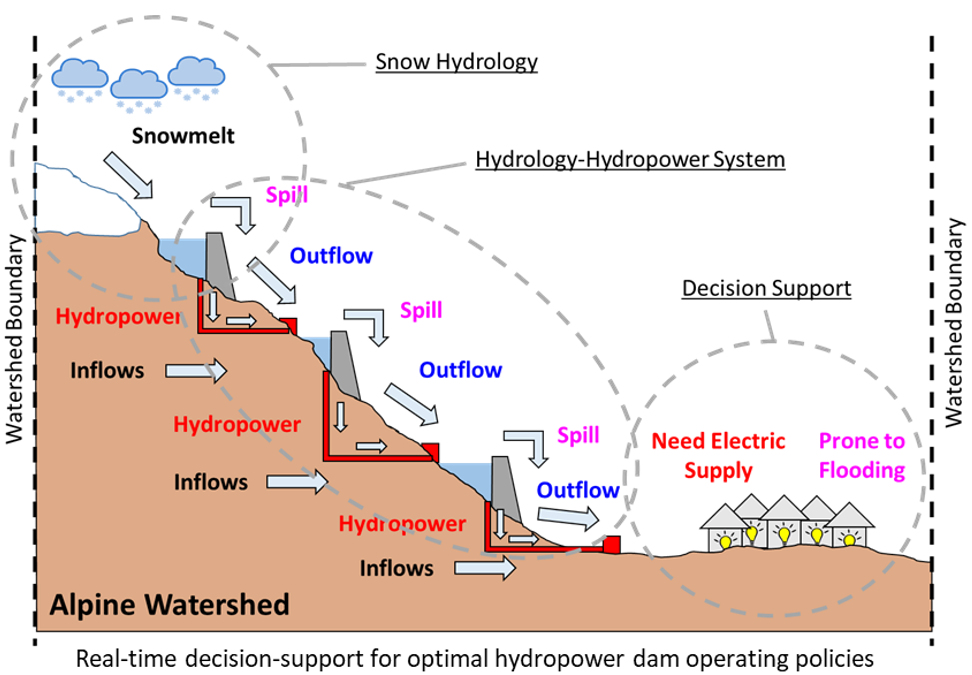Date:
Location:
By: Abdul Moiz, PhD candidate at The University of Tokyo | Listen to the audio recording
Abstract: Hydropower is an important source of renewable energy with a large untapped potential. In addition, existing hydropower dam operating policies are established on the basis of historical river discharge observations instead of weather predictions, which limits the generation capability of these dams. Therefore, in this research, challenges related to two issues are addressed: (1) Identifying new project sites for hydropower generation and assessing their potential and (2) Optimal operation of existing hydropower dams using state-of-the-art Distributed Hydrological Models (DHMs) and prediction information.
To address the first issue, we developed a GIS-based decision-support tool that systematically evaluates all possible hydropower scheme alternatives to assist decision makers in assessing the hydropower potential of large data-scarce regions more objectively. Further integration of this tool with a Water and Energy Budget-based Distributed Hydrological Model with Snow physics (WEB-DHM-S) allowed us to identify both topographically and hydrologically optimal sites. The tool was tested by application to the case of Kunhar River Basin in Pakistan.
In order to address the second issue, accurate and fast hydrological simulations/predictions are needed. On the contrary, sophisticated models such as WEB-DHM-S are computationally expensive in terms of data inputs and computation times. We developed a new method for generating high resolution air temperature datasets in data-scare mountainous regions using 3D air temperature reanalysis datasets and ground observations for hydrological modeling applications. We further proposed a restructured framework of WEB-DHM-S by employing parallel computing to significantly cut down model computation times for real-time decision-support applications. This system is currently being deployed for Kurobe River Basin in Japan and is expected to provide valuable insights for altering the existing hydropower dam operating policies.
Speaker Bio: Abdul Moiz is a PhD candidate at The University of Tokyo’s Department of Civil Engineering supported by the Japanese Ministry of Education, Culture, Sports, Science and Technology (MEXT). His main research interest is the provision of decision support to hydropower planners using Geographic Information Systems. He is particularly interested in the development of toolsets that integrate advanced Distributed Hydrological Models (DHMs) with GIS to support climate-informed planning strategies for locating new hydropower projects as well as improved real-time operation of existing projects.

